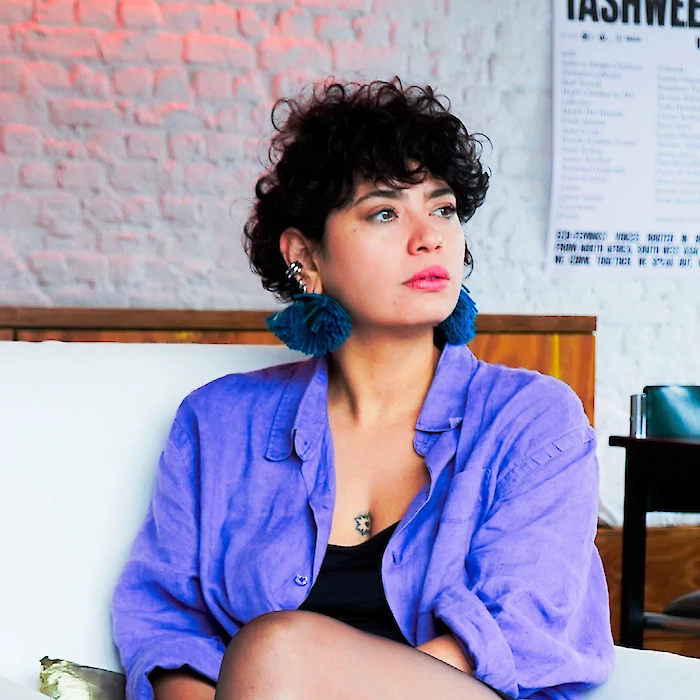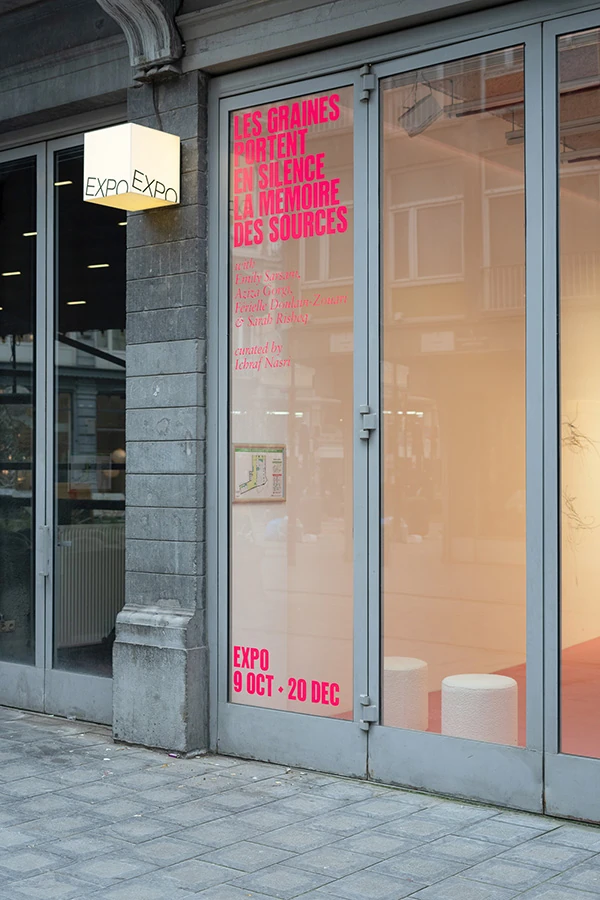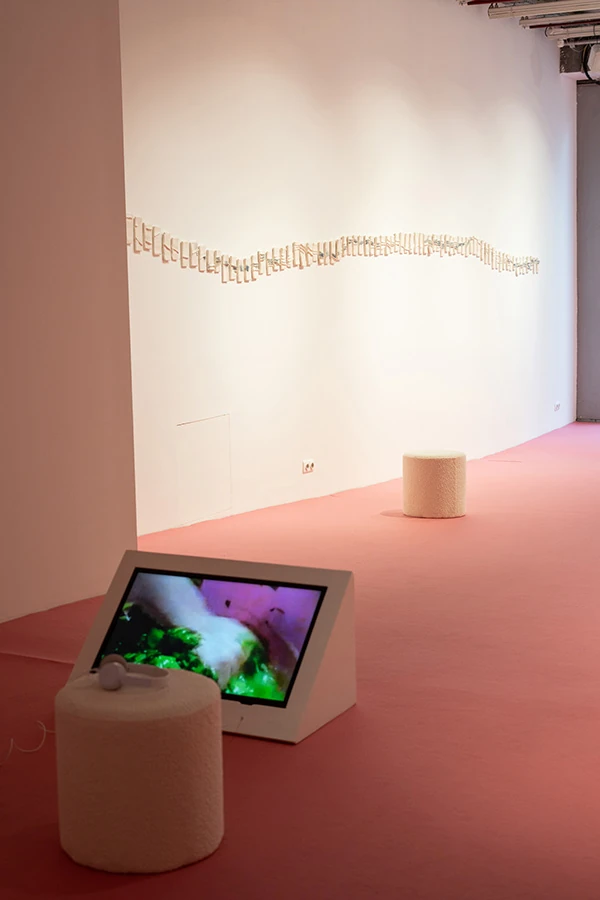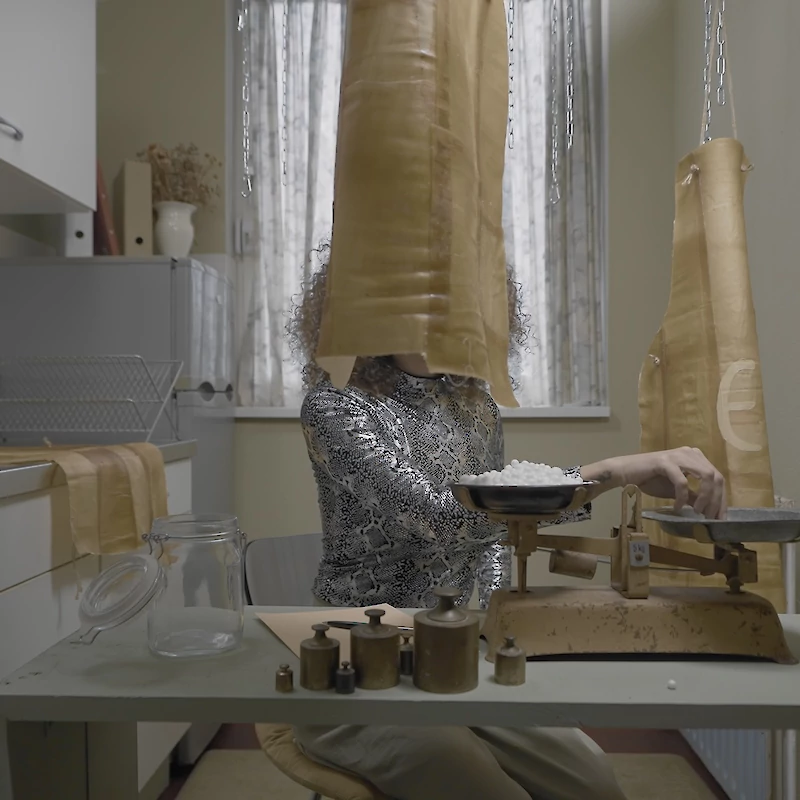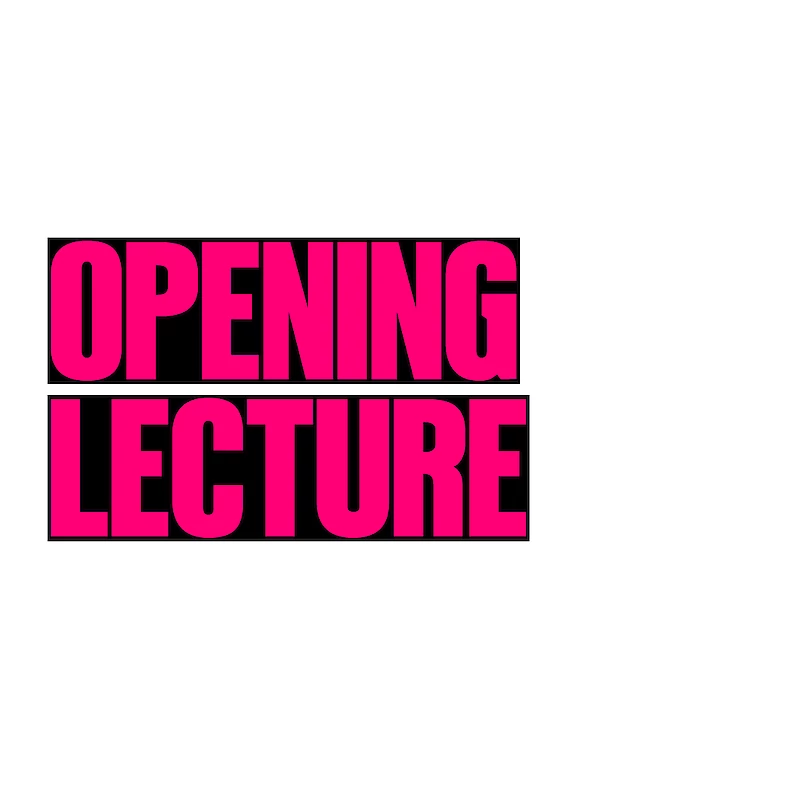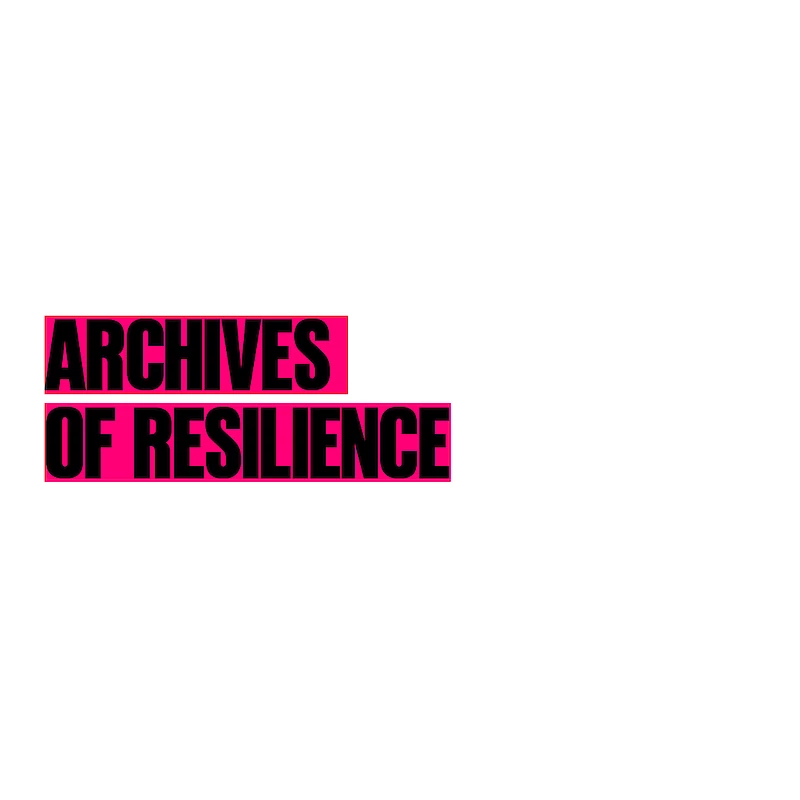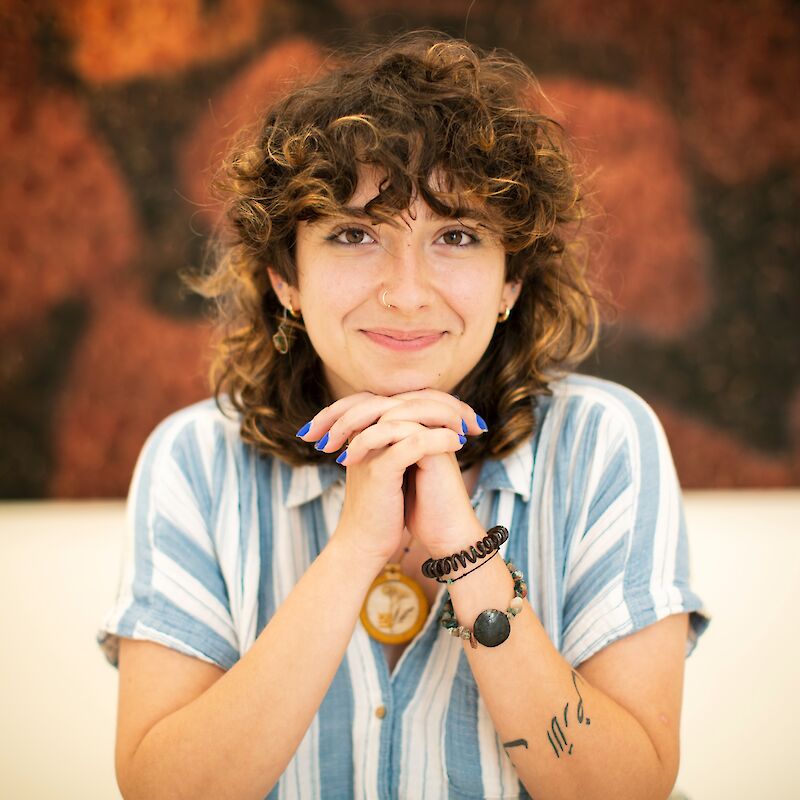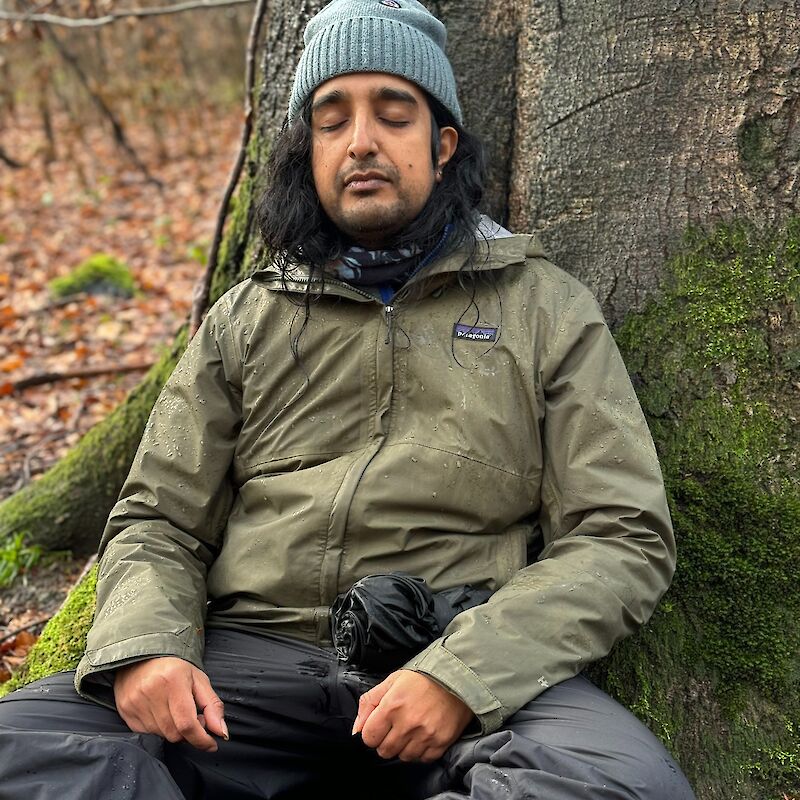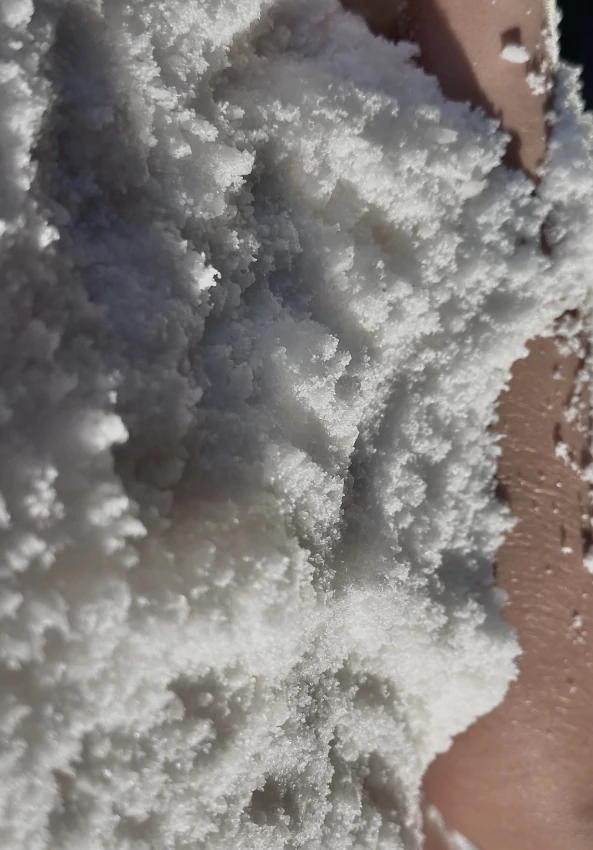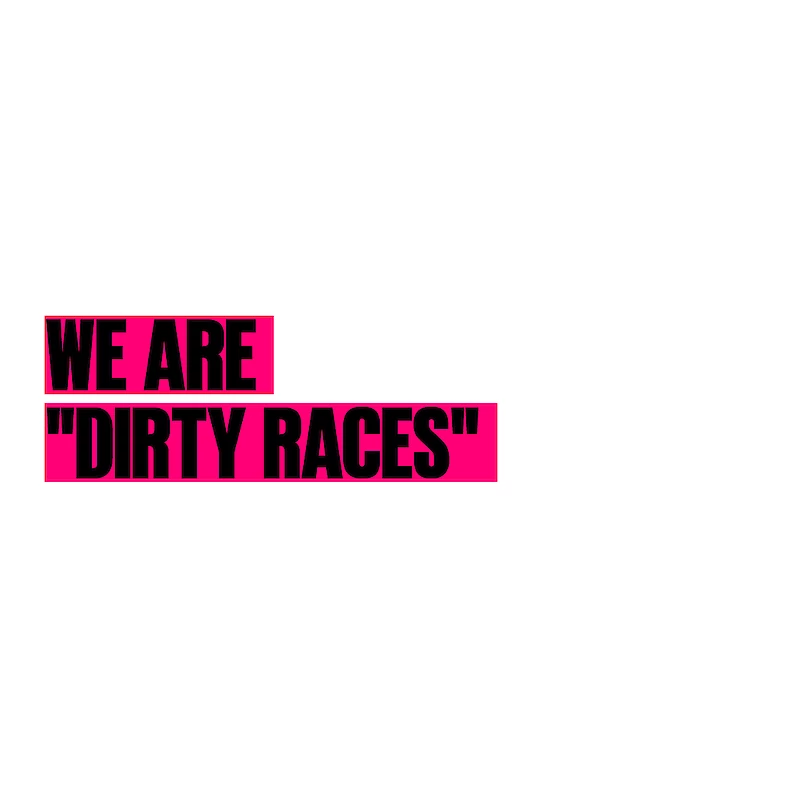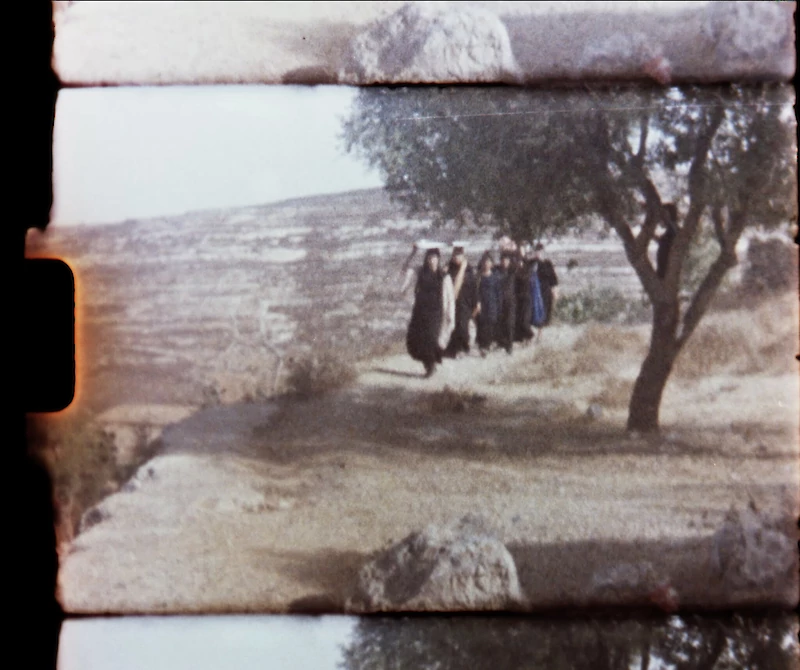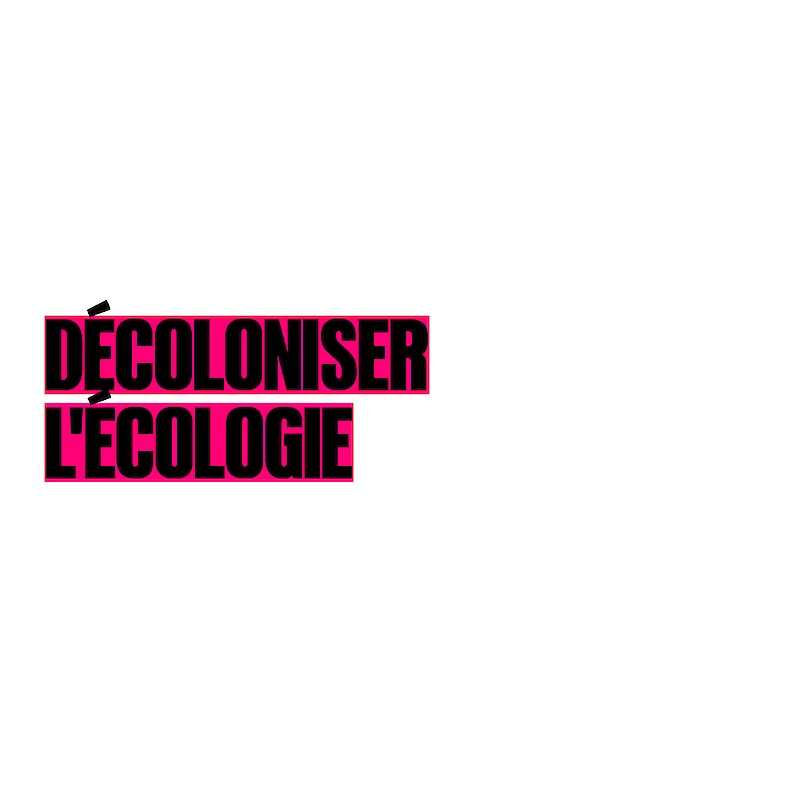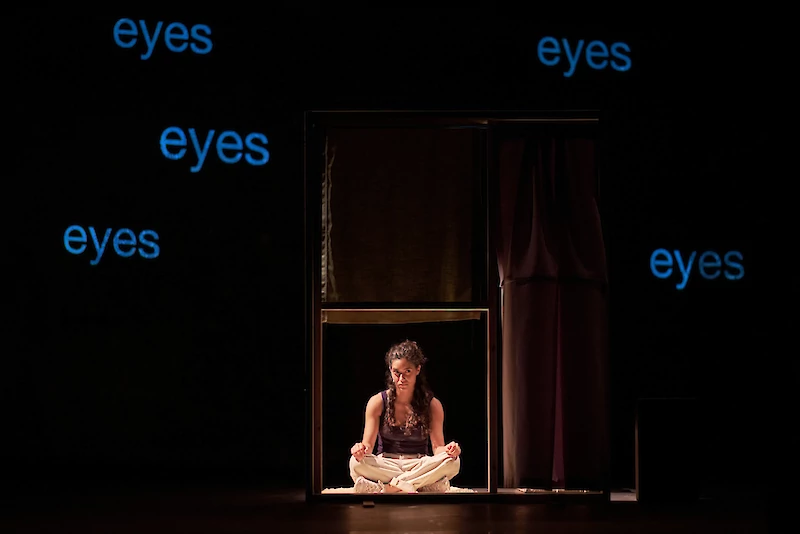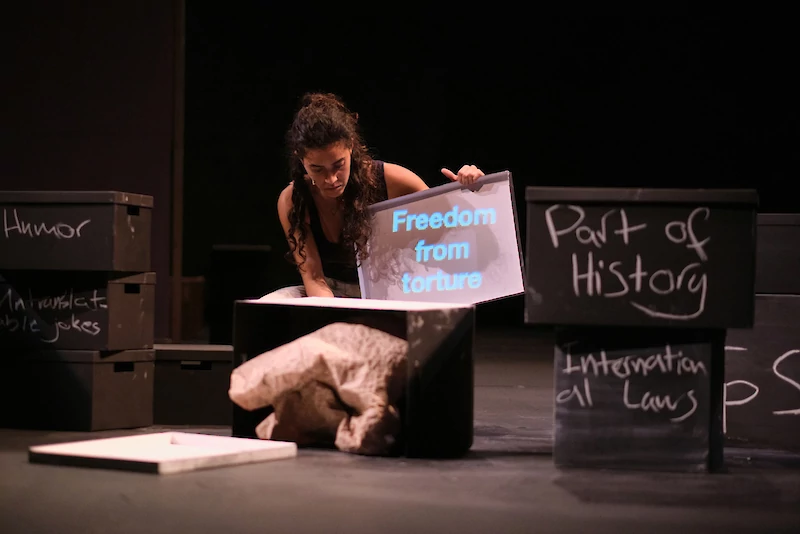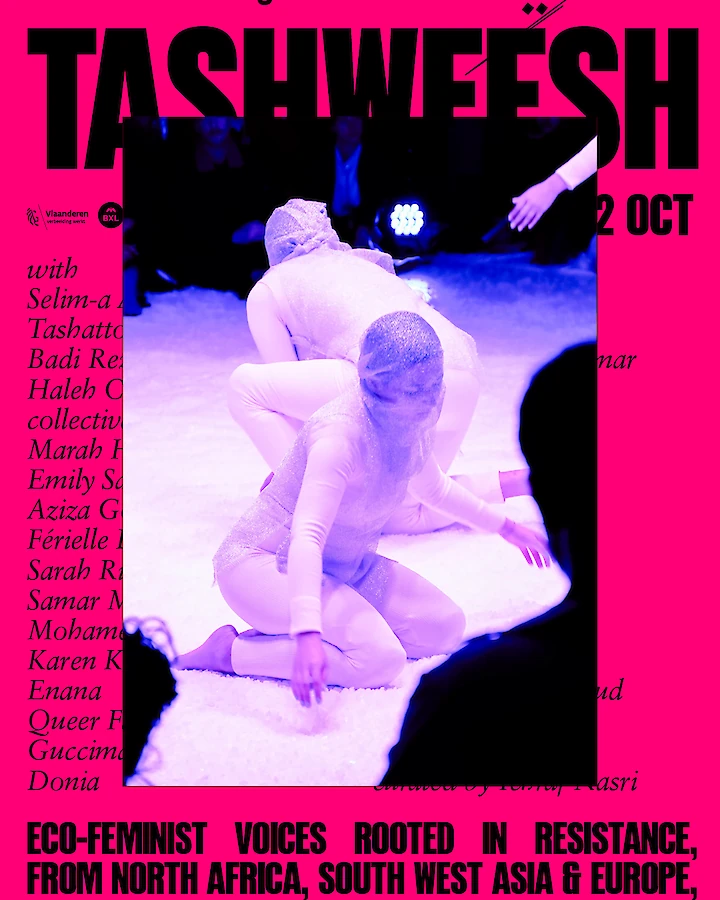"Visibility alone is not enough."
A CONVERSATION WITH TASHWEESH CURATOR ICHRAF NASRI
Artist-curator Ichraf Nasri met poet, researcher, and performer Selim-a Atallah Chettaoui during the 2022 edition of the Tashweesh festival. Ichraf hosted an open stage, and Selim-a presented poetry. It marked the beginning of a strong friendship.
In this conversation spanning Brussels, Paris, and Tunis, Ichraf and Selim-a dive into the themes of this year's Tashweesh edition. They explore how to thoughtfully discuss these intimate and complex topics and how to bring marginalised artists and their struggles to the forefront.
—
SA: You define yourself as a feminist, decolonial, and anti-racist artist and researcher, which influences your artistic and curatorial practices. How do you make artists who are overlooked by conventional platforms visible?
IN: Visibility alone isn’t enough. It’s crucial to highlight the ideas, stories, and struggles of artists by acknowledging the value of their work beyond one-off events. My aim is to ensure these artists are not just seen but genuinely recognised for the scope and relevance of their contributions to today's cultural landscape. It’s not about creating fleeting visibility but about building lasting institutional legitimacy for ways of making art that can be different.
I rely on collectives like Fatsabbat, Mémoire Coloniale, Comité des Femmes Sans Papiers, The Kitchen, and Tashattot (whom I invited to curate the Tashweesh Closing Night). I participate in workshops, learn about projects rooted in social realities, and connect with decolonial artists, particularly those in my collective, Xeno-. Drawing on the wealth of diverse perspectives I trust helps me approach these complex issues with as much accuracy as possible.
“Food allows us to reflect on the links between coloniality and ecology – an angle rarely addressed.”
SA: Your artistic and curatorial practices seem strongly linked. You are currently working on "Koujina: The Kitchen of the Subalterns." Can you tell us how this research affected your curation for this edition of Tashweesh?
IN: In my artistic project "Koujina: The Kitchen of the Subalterns," I explore how the circulation of food and culinary practices can both reinforce and challenge the postcolonial social order. I’m interested in commensality—meal sharing—as a collective, ritualised performance, but also as a potential strategy of resistance. Food allows us to reflect on the links between coloniality and ecology, an angle rarely addressed. Indeed, coloniality is not just a residue of colonialism; it is an essential mechanism of capitalism that intertwines desire and economy at the expense of so-called “subaltern” populations. By resisting the erasure of their practices, those who are marginalised become genuine agents of social and political change.
There are natural connections between Koujina and the Tashweesh project, namely the appreciation of SWANA feminist thought and the emphasis on the knowledge carried by the women of this region. I decided to focus my reflection for this edition of Tashweesh on the question of land and subsistence. Myriam Bahaffou opens the festival with a talk on food justice from an ecofeminist, antispeciesist, and decolonial perspective. Food and its sharing and domestication explored through various mediums—texts, films, performances—transcend the everyday to address political, economic, and ecological issues that are integral to decolonial struggles.
“Resisting coloniality necessarily involves retracing the footprints of a lost past.”
SA: Resistance to coloniality involves tracing back to the footprints of a past, knowledge and stories that have been lost. Their only remains are often their absence. Do you sometimes feel that you proceed by conjecture, reconstruction? What guides you?
IN: Absolutely, that's very well put. Yes, resisting coloniality necessarily involves retracing the footprints of a past, of knowledge and stories that have been marginalized or erased by colonial power structures. This erasure is akin to how women's contributions and knowledge often disappear from history. We must proceed by conjecture and reconstruction to piece these stories of resistance back together. Colonial archives, incomplete and/or biased, don't reflect the perspectives of the colonised. Therefore, we must rely on indirect sources, material traces, and oral narratives to attempt to reconstruct our hidden stories.
What guides me in this reconstruction work is inspiration drawn from decolonial epistemologies. Instead of seeking a definitive historical truth, it’s about highlighting repressed perspectives, giving voice to resistance. This is what Sarah Risheq proposes in the Tashweesh exhibition “Les Graines Portent en Silence la Mémoire des Sources” questioning archives not as mere repositories of the past, but as living entities haunted by memories, grief, and ruptures. Or the project by Emily Sarsam and Aziza Gorigi, inspired by a discussion with Si Omor, a farmer who manages a seed bank in southern Tunisia to reintroduce the Bishna, a seed displaced and patented in Europe. This art of relation operates by relying on orality, creating protocols for knowledge transmission, to resist the coloniality that marginalizes these stories. It asserts that these narratives of resistance hold value in themselves, beyond their mere function as opposition to colonialism, as other, equally legitimate epistemologies.
“Land is not merely a biological entity, but a living matter.”
SA: The topics of land and resistance seem essential to how you envisioned this Tashweesh edition. Is what's happening in Palestine and elsewhere the catalyst for this concern?
IN: Yes, the notion of land is indeed crucial, considering the genocide in Palestine and elsewhere, where struggles for land preservation and food sovereignty are closely tied to resistance against colonialism and oppression. By grounding this edition of Tashweesh in an approach rooted in the concept of land—not merely a biological entity, but a living matter, a nourishing soil connected to agricultural and cultural practices that anchor life—I strive to spotlight perspectives of struggle often overlooked. The programming of Tashweesh cinema is dedicated to Palestinian artists, featuring a series of films that challenge systems of oppression and exploitation by proposing alternative ways of living.
Here, land becomes a convergence point of these various dimensions, both material and symbolic. The invited artists and thinkers embody this notion—their works and discourses open perspectives for imagining other possible futures anchored in land and social justice. For example, Fatima Ouassak offers ecological resistance strategies for and by people living in marginalized neighborhoods, within their very living spaces. At the same time, Shanthuru Premkumar defends the perspective of marginalized migrant populations who have experienced deprivations imposed by their social class and do not identify with the ideal of renunciation promoted by the dominant ecological discourse, which is detached from the successive stories of dispossession faced by the most marginalized.
“By including cis men in an ecofeminist program, I emphasise that the struggle for equality and justice is not solely the burden of women but requires the engagement of all genders.”
SA: You decided to include cis men in your programming, which deviates from what you've pursued in your previous projects and the programs usually offered by Tashweesh. How did you come to this decision?
IN: Yes, I thought a lot about this. A few years ago, I was categorically against this idea. But, as bell hooks discusses, there is a need for collective responsibility in the fight against oppression. By including cis men in an ecofeminist program, I emphasize that the struggle for equality and justice is not solely the burden of women but requires the engagement of all genders. This reinforces the idea that decolonization is an issue that concerns society as a whole and everyone has a responsibility. For example, Badi Rezzak’s performance "Stadium by the Dunes" explores the connections between masculinity, territory, and ecology, to imagine a renewed, decolonized masculinity, redefining strength not as a show of power but as a commitment to life. Meanwhile, the poetry of Tarik Hamdan delves into the everyday life of the displaced Palestinian author who continues to experience, from afar, the violence imposed on his people, which he watches helplessly. The contributions of cis men thus seemed to me to complement feminist and racialized voices, as long as they remain attentive not to overshadow the specific struggles of women and gender minorities.
Ichraf Nasri, an artist and exhibition curator of Tunisian and Algerian descent, works between Tunis and Brussels. Her fascination with social rules, customs, and rituals leads her to explore themes of domination, resistance, and transmission. With collaboration at the core of her artistic practice, curation emerges naturally as an extension of her work. This approach allows her to challenge the western and patriarchal dominance in the creation and spread of knowledge. Her work blends sculpture, photography, writing, video, and sound. She examines various aspects of contemporary society through installations that delve into history and anthropology. In 2019, Nasri founded Xeno_, a nomadic art platform and practical research lab focused on intersectional feminist issues. Through Xeno_, she has organised several exhibitions and activities in Brussels and collaborated with the Fame Festival, Centrale Bruxelles, Komplot, Bozar, KANAL, and collaborates for the second time now, with Beursschouwburg for the Tashweesh Festival.
photo © Asma Laajimi
